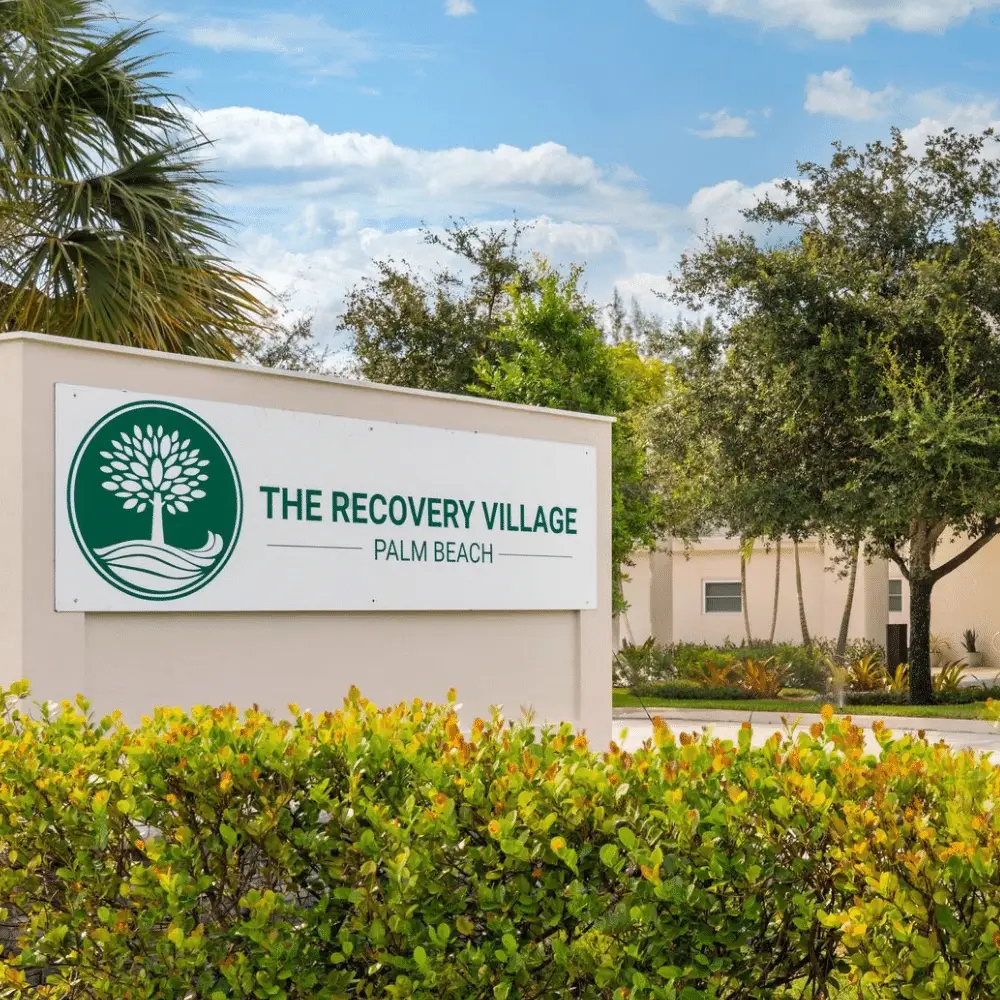Fort Lauderdale, Florida, faces a growing problem with substance abuse, like much of the state. Each year, more than 66,000 people seek help for substance abuse in Florida. This issue involves recreational drugs, alcohol, and misusing prescription drugs.
But in Fort Lauderdale, there are many resources for people fighting addiction. Treatment centers like The Recovery Village Palm Beach at Baptist Health Drug and Alcohol Rehab offer counseling, support groups and inpatient rehab to help those in need.
About Fort Lauderdale, Florida
Fort Lauderdale is located on the southeastern coast of Florida. It’s well-known for its extensive canal network, making it a major yachting center. The city has a rich history that dates back to the time of the Seminole Indians. Over the years, it has transformed from a predominantly agricultural region into a modern urban setting.
Fort Lauderdale has a population of over 179,000. The city is home to diverse cultures, presenting a radiant blend of traditions and heritage. This is all reflected in its art, food and lifestyle.
Treatment Can Be Life Changing. Reach out today.

Although Fort Lauderdale has a lively vibe, it faces a significant challenge with substance abuse. The city is in Broward County, where substance abuse issues — primarily opioids — are prevalent. These problems affect a broad range of people. Various local and federal initiatives, such as SAMHSA, continually address this issue. These initiatives aim to provide resources and support for residents dealing with substance abuse.
Our Closest Facility

We understand the struggle of overcoming substance use and co-occurring mental health disorders. Our closest location, The Recovery Village Palm Beach at Baptist Health, is here to support you in this journey. Our facility is a prime option for residents of Fort Lauderdale, Florida, who are seeking help.
Why Choose Us?
- Same-Day Admissions: We are ready to support your recovery the same day you decide to quit substance use and embark on your recovery journey.
- Proximity: We’re close to people living in Fort Lauderdale, so you don’t have to travel far during these challenging times.
- Support: Our dedicated team ensures you get the needed support and guidance on your path to recovery.
Contact Information:
Address: 4905 Lantana Rd, Lake Worth, FL 33463
Contact Number: (561) 340-7269
Website: floridarehab.com
South Florida Communities We Serve
Substance Abuse Rehab Programs Near Fort Lauderdale, Florida
Are you looking for high-quality substance abuse treatment programs near Fort Lauderdale, Florida? If so, you can trust The Recovery Village Palm Beach at Baptist Health Drug and Alcohol Rehab. Our facility provides patient-centered addiction rehab programs designed to meet each patient’s unique needs and encourage lasting recovery.
Medical Detox
Detox programs offer 24/7 medical supervision. This specialized treatment for withdrawal symptoms takes place in a safe, comfortable environment. The goal is to make the detox process less daunting and unpleasant.
Intensive Inpatient Rehab
Inpatient rehab centers provide a safe and structured environment where patients can focus on recovery. This approach is especially beneficial for those with severe addiction or co-occurring mental disorders.
Partial Hospitalization Program (PHP)
A PHP comes after inpatient care. It offers patients more freedom and leisure time. They can actively manage their recovery while still at the rehab facility.
Intensive Outpatient Program (IOP)
An IOP helps patients transition from inpatient care to outpatient treatment. However, it can also serve as the first step for individuals with milder addictions.
Dual-Diagnosis Treatment
Dual-diagnosis treatment, or co-occurring disorders treatment, is a specialized form of care. It addresses both a substance use disorder (SUD) and a mental health disorder at the same time.
Aftercare
Aftercare is an essential part of recovery. It offers ongoing support to people who have finished a formal SUD treatment program. This helps them shift from more intensive care back into their daily lives. At the same time, it continues supporting their sobriety.
Common Co-Occurring Disorders in Fort Lauderdale, Florida
In Fort Lauderdale, Florida, many people have both mental health and substance use disorders. This is known as co-occurring disorders. These conditions often occur together, making diagnosis and treatment more complicated.
One common co-occurring disorder is bipolar disorder and substance abuse. People may turn to substances for short-term relief from mental health issues. But in the long run, this can worsen bipolar symptoms and create more problems.
Depression and alcoholism is another widely reported co-occurring disorder in Fort Lauderdale. People often self-medicate with alcohol to relieve sad feelings. However, alcohol is a depressant. For this reason, alcohol can worsen depressive symptoms, leading to a vicious cycle.
Anxiety disorders also often co-occur with substance use disorders. One common example is generalized anxiety disorder (GAD). Anxiety is the body’s natural response to stress. Some people may use substances to alleviate these feelings if they become too strong. However, this can result in dependence. This is because withdrawal from many substances can increase anxiety levels.
Recognizing the connection between mental health and substance use is crucial. In Fort Lauderdale, local support and professional treatment is available for individuals dealing with these dual problems.
Recovery Resources in Fort Lauderdale, Florida
Many state, local and government resources are available in Fort Lauderdale. They can provide much-needed support for those struggling with addiction and looking for recovery solutions.
State and Local Resources
- Florida Department of Children and Families: Substance Abuse Program
- Broward Addiction Recovery Center (BARC)
- Florida Department of Health
- Florida Council on Compulsive Gambling
- Alcoholics Anonymous – Fort Lauderdale
- United Way of Broward County: Commission on Behavioral Health & Drug Prevention
Government Resources
- Substance Abuse and Mental Health Services Administration (SAMHSA)
- National Institute of Mental Health (NIMH)
- Centers for Disease Control and Prevention: Alcohol and Public Health
- National Center for PTSD
- National Institute on Alcohol Abuse and Alcoholism
Substance Abuse in Fort Lauderdale, Florida
Substance abuse significantly impacts individuals and communities in Fort Lauderdale, Florida. Understanding what the most common substances of abuse are can help in several ways. These include spreading awareness of drug use and executing addiction prevention efforts.
Alcohol: According to SAMHSA, around 51.3% of Floridians reported alcohol use in the past month. 17.5% also reported binge alcohol use.
Opiates: In 2019, the Florida Department of Health reported an alarming 4,294 opioid-related deaths.
Marijuana: Medical marijuana becoming legal in Florida has sparked concerns about potential misuse. According to SAMHSA, an estimated 15% of Floridians used marijuana in the past year.
Cocaine: Florida’s proximity to Central and South America has made it a hub for drug trafficking. This includes cocaine. In 2018, the National Institute on Drug Abuse reported 3,189 cocaine-involved deaths in Florida.
Methamphetamines: Meth has also seen a resurgence in Florida in recent years. From 2021 to 2022, there was an 8% increase in meth overdose deaths.
It’s essential to know how common and harmful these substances are in Fort Lauderdale and Florida. Understanding this can help communities, families and individuals better work together to prevent substance abuse.
Warning Signs of Substance Abuse
If you or a loved one in Fort Lauderdale, Florida, are concerned about possible substance abuse, it’s important to recognize the warning signs. These can often vary depending on the substance being abused, but general indications include:
- Behavioral changes: Sudden changes in behavior may include becoming unusually secretive, aggressive or withdrawn.
- Physical alterations: Changes in appearance may include weight loss, inconsistent sleep patterns or bloodshot eyes.
- Financial problems: Substance abuse can lead to unexpected financial trouble. The person may spend a lot of money on their drug of choice.
- Neglecting responsibilities: This may include missing work, skipping school or neglecting loved ones.
- Health issues: These may include memory issues, poor coordination or unexplained injuries.
If you recognize these signs in yourself or someone else, seeking help is crucial. Remember, substance abuse is a serious issue that affects not just the individual but also those around them. Recognizing the warning signs is the first step towards getting help and starting the recovery journey.
Alcohol Addiction Treatments in Fort Lauderdale, Florida
In Fort Lauderdale and the broader Florida area, there are multiple alcohol addiction treatment strategies.
Detoxification
Detoxification is often the first crucial step in treating alcohol addiction. It involves the complete withdrawal from alcohol. This means the body flushes out any traces of the substance. While critical, this process causes withdrawal symptoms that may require medical management.
Behavioral Treatments
These are therapies that aim to change drinking behavior through counseling. They are led by health professionals and supported by studies showing they can be beneficial.
Medications
Three medications are currently approved in the U.S. to help people stop or reduce their drinking and prevent relapse. They are prescribed by a primary care physician or other health professional. They may be used alone or in combination with counseling.
Mutual-Support Groups
Alcoholics Anonymous (AA) and similar 12-step programs offer support for people trying to quit drinking. Alongside professional treatment, these groups provide valuable extra help.
The Opioid Epidemic in Fort Lauderdale, Florida
The opioid epidemic has swept across the U.S., creating a public health crisis. Overdoses continue to claim the lives of thousands of Floridians every year. Opioid overdoses are responsible for most overdose deaths.
Opioid Overdose Deaths in Fort Lauderdale
Broward County, where Fort Lauderdale is located, sees hundreds of opioid overdose deaths each year. In the first half of 2022, over 280 people in Broward County died from opioid overdoses.
Opioid Addiction Treatment Options in Fort Lauderdale
Despite the seriousness of the opioid crisis in Fort Lauderdale, there are various treatment choices available. These include inpatient rehab, outpatient programs, medication-assisted treatment (MAT), counseling, and behavioral therapies.
Medical Detox
Opioid withdrawal can be tough. However, 24/7 medical supervision and quick symptom treatment make it safer and more comfortable.
Intensive Inpatient Rehab
Inpatient programs provide structured and intensive opioid addiction treatment. Patients live at the rehab facility and receive evidence-based care from licensed clinicians daily.
Partial Hospitalization Program (PHP)
After inpatient rehab, PHP offers a balanced approach. It combines intensive care with more independence than inpatient treatment.
Intensive Outpatient Program (IOP)
IOP supports patients as they transition to independent living in the community. Patients get several hours of therapy each week to address addiction and co-occurring disorders.
Dual-Diagnosis Treatment
This specialized care addresses both opioid use and mental health disorders. This approach recognizes their complex connection and provides evidence-based treatment.
Medication-Assisted Treatment (MAT)
Medications can help manage cravings and prevent relapse for patients with opioid use disorder when medically appropriate.
Aftercare
Aftercare resources include opioid relapse prevention strategies, referrals and support groups. A customized aftercare plan is designed for your unique needs. In turn, this maximizes your chances of long-term success after rehab.
Government Resources
The federal government provides several resources for dealing with the opioid crisis. SAMHSA’s (Substance Abuse and Mental Health Services Administration) National Helpline is a free, confidential resource available 24/7. Their full list of services can be found on the SAMHSA Website.
Florida’s State Government also provides assistance through the Florida Department of Children and Families. They provide a list of state-funded opiate treatment programs on the MyFloridaFamilies Website.
Find Lasting Recovery in Fort Lauderdale, Florida
We know that recovery is a unique journey that involves more than just quitting drugs. That’s why our rehab program takes a holistic approach. It includes medical detox, inpatient treatment, mental health support and aftercare services. Our goal isn’t just to help people stop using substances; we also give them the tools to live a fulfilling life without drugs or alcohol.
We believe in the strength and resilience of the human spirit and your capacity to overcome addiction. Our dedicated Recovery Advocates are available to assess your needs and help guide you to the most suitable treatment option for lasting recovery.
Living in Fort Lauderdale, Florida and struggling with addiction? We encourage you to take that important first step toward healing. Reach out to a Recovery Advocate today. A life of health, happiness and meaningful relationships is within your reach.











